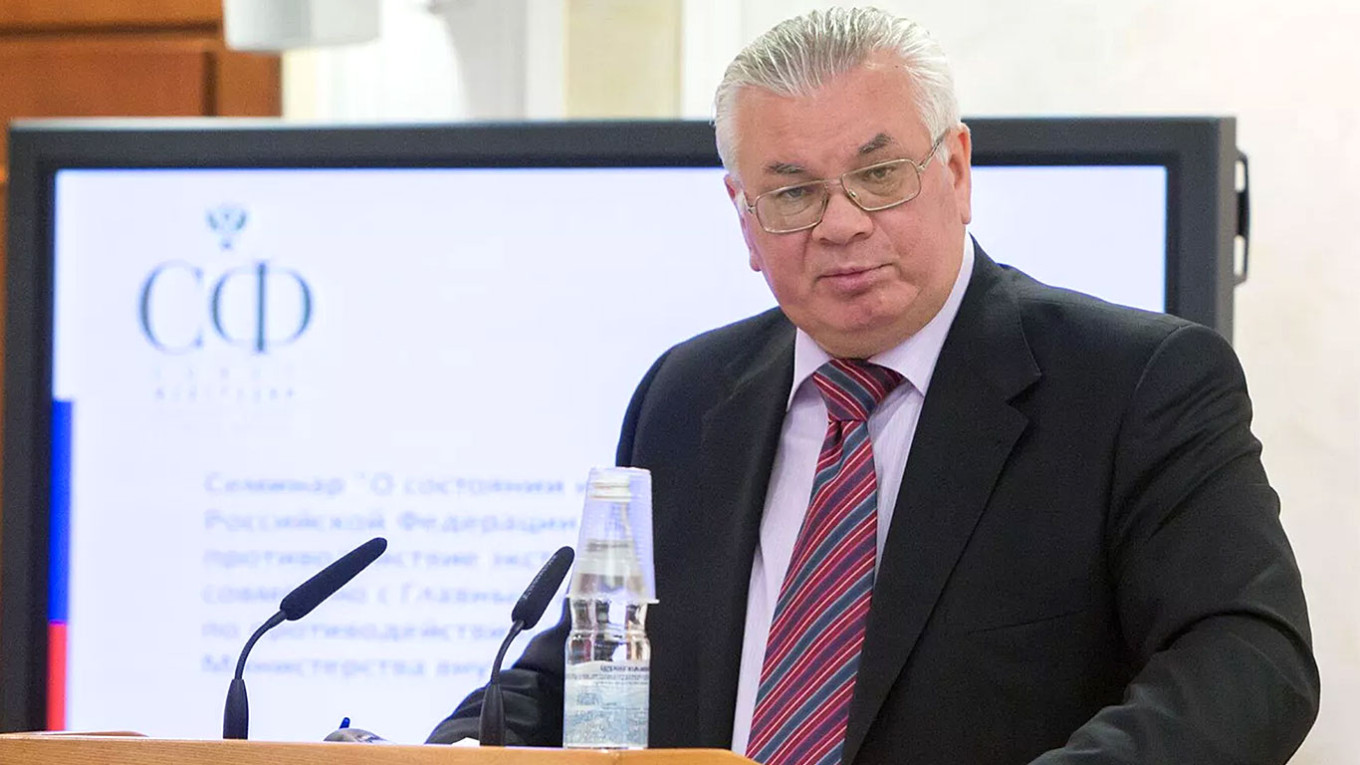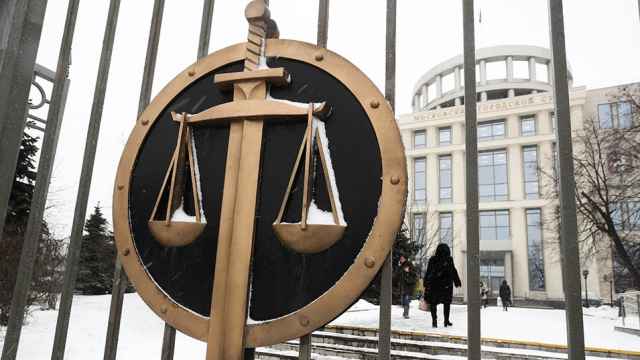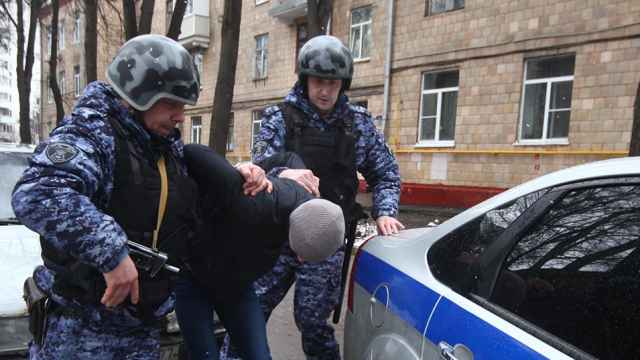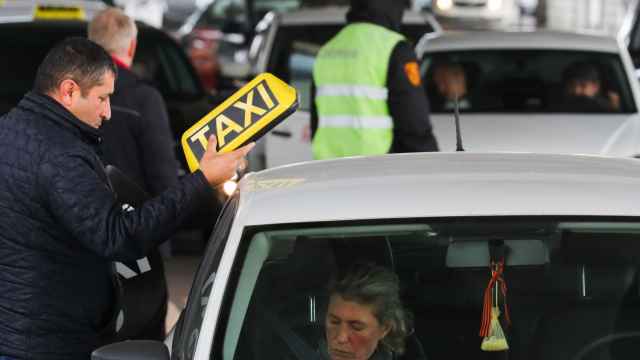A former Russian police general who had been in charge of cracking down on protesters has been found dead in an apparent suicide following his dismissal by President Vladimir Putin, state media reported.
Major General Vladimir Makarov, 72, had helped oversee Russia's crackdown on opposition activists in his role as deputy chief of the Russian police's anti-extremism unit.
Putin dismissed Makarov, who was described as “once the main organizer of the ‘hunt’ for opposition activists and inconvenient journalists,” in late January.
Police found Makarov’s body at his suburban home northwest of Moscow on Monday, the state-run TASS news agency reported Monday evening, citing unnamed law enforcement sources.
Police ruled Makarov’s death to be a suicide.
The Baza Telegram channel, which is believed to have links to Russian security services, cited anonymous sources as saying that Makarov had allegedly shot himself with a gas-operated hunting rifle at his home in the presence of his wife. They suggested the career Interior Ministry officer fell into a depressive episode after his dismissal.
Makarov is the latest high-ranking Russian security figure to have died by apparent suicide in recent months.
Last summer, reports emerged that retired Federal Security Service (FSB) Major General Yevgeny Lobachev and Foreign Intelligence Service (SVR) Major General Lev Sotskov were separately found dead in what were reported to be suicides.
A Message from The Moscow Times:
Dear readers,
We are facing unprecedented challenges. Russia's Prosecutor General's Office has designated The Moscow Times as an "undesirable" organization, criminalizing our work and putting our staff at risk of prosecution. This follows our earlier unjust labeling as a "foreign agent."
These actions are direct attempts to silence independent journalism in Russia. The authorities claim our work "discredits the decisions of the Russian leadership." We see things differently: we strive to provide accurate, unbiased reporting on Russia.
We, the journalists of The Moscow Times, refuse to be silenced. But to continue our work, we need your help.
Your support, no matter how small, makes a world of difference. If you can, please support us monthly starting from just $2. It's quick to set up, and every contribution makes a significant impact.
By supporting The Moscow Times, you're defending open, independent journalism in the face of repression. Thank you for standing with us.
Remind me later.






